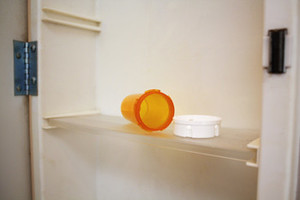There is growing anxiety around the supply of generic medicines in the UK, according to a statement released by the country’s All-Party Pharmacy Group (APPG). The problem is worse than it was two years ago [1], say the cross-bench Members of Parliament who make up the group, and it is not being addressed by the Department of Health’s (DoH) supply chain forum which was set up to address this very issue.
‘We are concerned that shortages in the generics market could result in many patients being unable to get their medicines on time,’ says Group Chairman Sir Kevin Barron MP. ‘This could be disastrous for patients: over 70% of prescriptions are for generic medicines.’
The problems of generic drug shortages are not unique to the UK; shortages of the cancer drug Doxil (doxorubicin) from 2012–2013, for example, were widespread and highlighted alarming vulnerability in supply chains [2, 3]. The US is also not immune. The number of drug shortages in the US has tripled between 2006 and 2012, with drug shortages now affecting most US oncologists and impacting on patient care [4].
Although globalization of the generics market may have a part to play, the UK must take action, says Sir Barron. Echoing statements released by the drug company Amgen [5], he says greater collaboration is needed. ‘We need to see urgent action and a willingness across the generics supply chain to work together,’ says Sir Barron, calling on the government’s DoH to take better control of the situation. Sir Barron’s group suggests that the DoH should publish updated supply chain guidance, specifically addressing best practice in quota setting and management.
Worryingly, inflexible quotas imposed by manufacturers and some wholesalers remain in force. This means that community pharmacists still have to spend a large amount of their time negotiating to obtain the medicines their patients need. Pharmacists can find themselves rationing medicines in order to manage shortages, when they should be providing advice, helping people with minor ailments, and carrying out services such as medicines use reviews.
According to a yearlong survey in 2013 by Chemist+Druggist, UK pharmacies reported that their patients suffered harm in 75% of drug shortages. This was largely only moderate harm, but in 12% of cases patients reportedly suffered severe harm because of the delay in accessing their medicines. The APPG now says that, compared with two years ago, supply problems are hitting generic drugs hardest.
Related articles
UK drug shortages are far from being solved
UK drug shortages continue to affect pharmacists and patients
Members of parliament to hold inquiry into UK drug shortages
References
1. GaBI Online - Generics and Biosimilars Initiative. APPG reports on drug shortages and MHRA bans unlicensed stock trading [www.gabionline.net]. Mol, Belgium: Pro Pharma Communications International; [cited 2014 Aug 22]. Available from: www.gabionline.net/Pharma-News/APPG-reports-on-drug-shortages-and-MHRA-bans-unlicensed-stock-trading
2. GaBI Online - Generics and Biosimilars Initiative. FDA approves new suppliers to alleviate cancer drug shortages [www.gabionline.net]. Mol, Belgium: Pro Pharma Communications International; [cited 2014 Aug 22]. Available from: www.gabionline.net/Generics/General/FDA-approves-new-suppliers-to-alleviate-cancer-drug-shortages
3. GaBI Online - Generics and Biosimilars Initiative. Johnson & Johnson warns of shortages of cancer drug Doxil [www.gabionline.net]. Mol, Belgium: Pro Pharma Communications International; [cited 2014 Aug 22]. Available from: www.gabionline.net/Pharma-News/Johnson-Johnson-warns-of-shortages-of-cancer-drug-Doxil
4. Perks B. Drug shortages hit US oncologists hard. Generics and Biosimilars Initiative Journal (GaBI Journal). 2014;3(1):6-7. doi:10.5639/gabij.2014.0301.002
5. GaBI Online - Generics and Biosimilars Initiative. How to avoid drug shortages [www.gabionline.net]. Mol, Belgium: Pro Pharma Communications International; [cited 2014 Aug 22]. Available from: www.gabionline.net/Reports/How-to-avoid-drug-shortages
Permission granted to reproduce for personal and non-commercial use only. All other reproduction, copy or reprinting of all or part of any ‘Content’ found on this website is strictly prohibited without the prior consent of the publisher. Contact the publisher to obtain permission before redistributing.
Copyright – Unless otherwise stated all contents of this website are © 2014 Pro Pharma Communications International. All Rights Reserved.
Source: APPG, Chemist+Druggist








 0
0











Post your comment